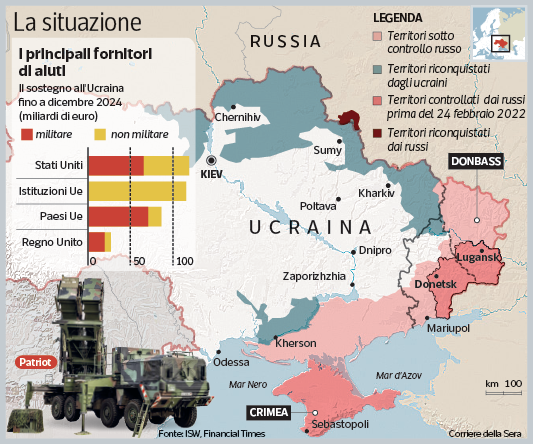Why did I close the Radio « Free Europe »?

It is Saturday, March 15, 4pm and a little, and it is quiet in the office.
I am not comfortable, due to a US President’s executive order, Donald Trump, for cuts at the United States Agency for Global Media (Usagm), which oversees my employer, Radio Free Europe (REL).
Amid the uncertainties for the order, I continue to write what is happening in Kosovo and beyond.
I fight the discomfort, while the director of the Rel Kosovo Service gives me the news of Usagm’s media outlet. I am surprised and bored. My colleagues feel the same.
Within minutes, Radio Free Europe returns from news producers to the news itself.
Social networks are flooded by reactions from all sides-most are shocked and do not see the option closing the rel.
Company President Stephen Capus states that « Iranian Ayatollahs, Chinese Communist leaders and autocrats in Moscow and Minsk would celebrate for the destruction of Radio Free Europe after 75 years. »
Rel was established in 1950, with a mission to promote democratic values and provide reliable and relevant information, as well as to oppose Soviet propaganda during the Cold War.
Until the 1970s it was funded by the US Congress through the US Central Intelligence Agency (CIA), and later through two -party support from Congress – always maintaining editorial independence.
RFE / RL reports today in 27 languages and penetrates 47 million people within a week, in countries where the free press is prohibited or not fully functioning.
In Iran and Pakistan, for example, it is mostly present through the radio. In other countries, including Kosovo, it is more accessible through the website and social networks.
Radio Free Europe broadcasts in Albanian since March 8, 1999.
As one of the most reliable media in Kosovo, the REL has reported on both the largest developments during the state-building process and for marginalized groups.
The Kosovo service has evolved in step with journalism. In addition to radio shows, the Rel team is known today for research, video production, infograms, promoting transparency and accountability.
According to a survey compiled by the Global Gallup Network, in 2023, 90 percent of Kosovars consider the REL a reliable source of information, while 79 percent of the respondents believe Rel increases their knowledge of news.
Following the announcement of the possibility of closing the Radio Free Europe, the German Embassy in Kosovo described the REL as « free and impartial reporting » and confirmed that the European Union is considering ways to support it.
The EU Office in Kosovo said that the prohibition of Rel’s work would benefit « only those who spread divisive narratives ».
For Kosovo media expert Flutura Kusari, the termination of funds for the Rub is a serious blow to public information, and « Radio Free Europe is an example of responsible journalism in Kosovo ».
Farid Amin Dehkordi, from the Persian Language Service of Radio Free Europe, calls anxious on the evening of March 15.
« It was not an easy night. »
He points out that for the Iranians, Radio Farda-as Rel is known in Iran-is important because it is the only state-supported radio, and from which the audience can receive reliable news.
« We have received messages from the audience, saying, ‘How can we help you?’ ‘We have grown with this radio’, ‘If it closes, I don’t know where I can be informed?’
For him and for his colleagues, the Rele is more than a job. For Iranian journalists, Rel work means that they may never return home again.
« We are driven by the mission to tell the truth. When I was in Iran myself, I have always checked the Farda radio site to see what the real news is. »
Natalia Slobodian, producer in Current Time-Russian Rel TV channel-worked in the Kiev editorial office since 2020, and then moved to Prague in 2022, after the launch of the war in Ukraine.
« The news has worried me because of uncertainty in my work, as well as the fact that Radio Free Europe and my Current are critical sources for independent news. Their loss would be a great loss for audiences in Ukraine and post-Soviet states. »
She too shows that they have received numerous messages from the audience, and says that « their support is a commemoration of the importance of independent journalism and the reason we continue our work. »
Over the years, some REL journalists have died in office, and some continue to be imprisoned by oppressive regimes.
On March 18, Radio Free Europe launched a litigation in Washington, as estimating that the agency that oversees it, Usagm, has no right to ban its funds that the congress has allocated by the end of the fiscal year in the United States on September 30.
Until a final decision is made, we continue to motivate and support each other to produce objective journalism and report on facts, just like the first day!
Proud cubolli




